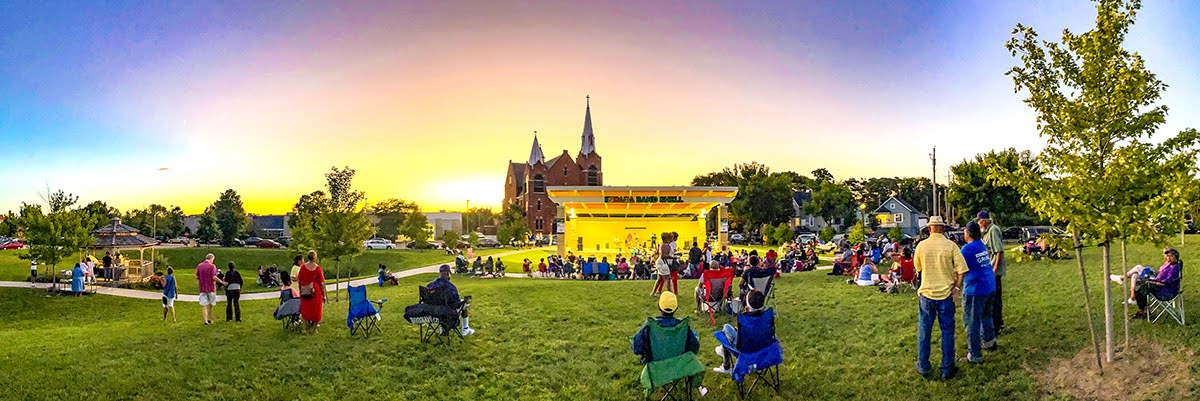Campus site transformation receives national award

St. Ann Center this summer received a national award for the stunning transformation of the 7.5 acres of land that’s now the site of its Bucyrus Campus on the north side of Milwaukee.
Named for the mythical bird that was reborn out of ashes, the Phoenix Award for Brownfields Excellence, presented at the Brownfields 2022 Training Conference in Oklahoma City, celebrates sites that have brought new life to these previously developed sites that have potentially been compromised by harmful substances. The Bucyrus Campus received the award as the best project in EPA Region 5, which includes Wisconsin, Illinois, Indiana, Michigan, Minnesota and Ohio. Thousands of projects have been developed on brownfields in that region.

Brownfields are common across the country, particularly in urban areas. The Bucyrus site at 24th and North had been vacant for more than 50 years, but once held blocks of homes and businesses razed in the 1950s and ’60s for a freeway spur that was never built. Left behind was exposed soil contaminated with petroleum-based pollutants, lead and other heavy metals and pollutants.
St. Ann Center was one of the first nonprofits in the nation to receive U.S. Environmental Protection Brownfields Cleanup Grants to remediate the soil, said Chris Jackson, the organization’s Chief Development Officer, Facilities and Construction.
The $400,000 in EPA grants, along with grants from the Wisconsin Economic Development Corporation, allowed the 2017 excavation and removal of more than 3,800 cubic yards of contaminated soil, as well as moving another 2,000 cubic yards of contaminated soil into a hill and capping it with 3,800 cubic yards of imported clean clay and topsoil. That brought the property into compliance with federal and state requirements and allowed St. Ann Center to safely use the outdoor spaces for the frail elders, adults with disabilities and children who spend their day in care there.

One side of that created hill became a viewing area for audiences at the new Indaba Band Shell at the back of the property; the other side formed a children’s sliding area. St. Ann Center also added more than 30 raised garden beds on the landscaped grounds to grow fresh produce for the clients and children, as well as an intergenerational playgarden for adults and children to interact.
“The project was extraordinarily challenging due to its scale, scope and status as a first-time brownfield project for a small nonprofit organization,” noted David Holmes, a principal at Stantec Consulting Services, which partnered with St. Ann Center for the project. Key environmental concerns such as contaminated fill materials used in initial development dating to the late 1800s, as well as debris buried in 40 or more former basement areas of buildings demolished in the 1900s, hadn’t been fully identified during due diligence, and were only uncovered once construction of the building was already underway, he said.

Holmes said this is only the second Phoenix Award to be given in Milwaukee, and called the Bucyrus Campus project “one of the most impactful completed in Milwaukee’s northside neighborhoods.” The remediation and completion of the project made it possible for St. Ann Center to provide an array of services addressing neighborhood residents’ social, educational, health and employment needs.
St. Ann Center’s mission is primarily about caring for people. But President Sr. Edna Lonergan observed that “one of our Franciscan principles is to take care of the Earth” and that this soil cleanup has allowed St. Ann Center to provide better care and more opportunities for people, both for the children and clients it serves and the neighborhood.
The summer’s free weekly bandshell concerts attracted sometimes as many as 300 community members, she said, and the space has also been used by churches and other community groups for events. In addition, St. Ann Center has offered free outdoor activities like Pumpkin Palooza and an Easter Egg Hunt for neighborhood families.

